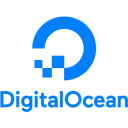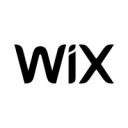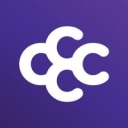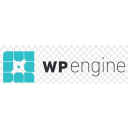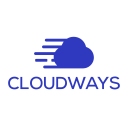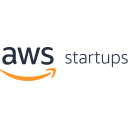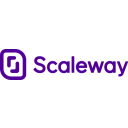Hostinger vs DigitalOcean: Which is the best hosting solution for your website?
- 01Hostinger vs DigitalOcean: overview
- 02What's the difference between Hostinger and DigitalOcean?
- 03Hostinger pros and cons
- 04DigitalOcean pros and cons
- 05Hostinger compared to DigitalOcean
- 06DigitalOcean compared to Hostinger
- 07Features comparison
- 08Hostinger vs DigitalOcean: Which is the best for your business?
- 09Promotions on Cloud Storage software
- 10Alternatives to Hostinger & DigitalOcean
Access up to $144 savings on Hostinger & $5,000 on DigitalOcean
Access up to $144 savings on Hostinger & $5,000 on DigitalOcean
Choosing the right web hosting service is critical for the success of your online presence, affecting everything from website speed and reliability to security and support. The right host can improve your website's performance, enhance user experience, and ensure your site remains up and running smoothly. Moreover, a good hosting provider can offer scalability, allowing your website to grow without running into performance issues.
With a range of hosting solutions available, how do you select the best one for your website? To assist you in this decision, we provide a comprehensive comparison of two widely recognized hosting services: Hostinger and DigitalOcean. By examining their main features, pricing structures, performance metrics, and key differences, you will be better equipped to choose the hosting service that best fits the needs of your website and business.
Hostinger vs DigitalOcean: overview
Hostinger and DigitalOcean stand as two distinguished providers in the web hosting and cloud storage industry, each bringing forth unique strengths tailored to cater to specific user preferences and requirements.
Hostinger is celebrated for its user-friendly approach, making it an excellent choice for individuals and small to medium-sized businesses seeking reliable, affordable hosting solutions. It shines in providing a simplified hosting experience, with tools and services designed to get websites up and running swiftly and effortlessly. On the flip side, DigitalOcean specializes in providing cloud hosting services that appeal to developers, startups, and businesses with a need for scalable, flexible, and high-performing hosting environments. DigitalOcean distinguishes itself with its developer-centric features, including droplets, spaces, and managed databases, which provide a more technical and customizable hosting solution.
Deciding between Hostinger and DigitalOcean hinges on understanding your specific hosting needs, technical proficiency, and the scale of your projects. Hostinger may be the go-to option for users in search of a straightforward, cost-effective hosting solution that doesn't sacrifice performance or support. Conversely, DigitalOcean is suited for those requiring more robust, scalable cloud hosting capabilities with a focus on developer-friendly features and the flexibility to grow as their projects expand.
What's the difference between Hostinger and DigitalOcean?
Hostinger and DigitalOcean are two distinct web hosting providers, each offering unique advantages tailored to different user needs and project requirements. Understanding the differences between these services is crucial when selecting the best hosting solution for your website or application.
Hostinger is renowned for its affordability and user-friendliness, making it an ideal choice for beginners, small to medium-sized businesses, and individuals looking to start their online journey with minimal hassle. It provides a variety of hosting options, including shared hosting, VPS hosting, and cloud hosting, with a strong emphasis on ease of use and customer support. Hostinger's hosting plans come with a user-friendly control panel, easy WordPress installation, and features aimed at simplifying the web hosting process for users with limited technical knowledge.
On the other hand, DigitalOcean specializes in cloud hosting services with a focus on developers and businesses requiring scalable and flexible infrastructure. It offers Droplets (cloud servers), which can be rapidly deployed and scaled according to project demands. DigitalOcean is preferred by those with a technical background due to its advanced features, such as SSD-only cloud servers, straightforward pricing, and robust scalability options. Its platform is designed to support complex applications, offering extensive API support, and a variety of advanced tools for deployment and management.
One of the main differences between Hostinger and DigitalOcean lies in their target audience and usability. Hostinger aims to provide an accessible entry point for users of all levels, including extensive support and guidance. DigitalOcean, while offering comprehensive documentation and community resources, expects users to have a certain level of technical expertise to fully leverage its cloud hosting solutions.
In terms of pricing, Hostinger often presents a more affordable path for users with straightforward hosting needs, offering packages that include free domain registration and SSL certificates. DigitalOcean's pricing model is based on hourly or monthly rates, providing transparency and flexibility for users who prioritize scalable cloud infrastructure over traditional web hosting services.
Choosing between Hostinger and DigitalOcean ultimately depends on your specific needs, technical proficiency, and project requirements. Hostinger is suited for users seeking an easy-to-use, cost-effective hosting solution, while DigitalOcean caters to those in need of a powerful, scalable cloud hosting platform with advanced features.
Hostinger pros and cons
What are the advantages of Hostinger?
- Affordable pricing: Hostinger offers some of the most competitive pricing in the industry, making it an attractive option for individuals and small businesses with limited budgets.
- User-friendly interface: Hostinger provides a user-friendly control panel (hPanel) that makes it easy for users to manage their hosting accounts, domains, and other settings without technical expertise.
- Solid performance: Hostinger boasts good uptime and fast loading speeds, especially considering its low prices. This can be crucial for websites seeking to provide a seamless user experience.
- Robust features: Hostinger offers a range of features even with its basic plans, including a free domain, website builder, SSL certificate, and daily backups, providing users with essential tools to build and maintain their websites.
- Excellent customer support: Hostinger provides 24/7 customer support via live chat and ticketing system. Users generally report positive experiences with the support team, finding them responsive and helpful.
What are the disadvantages of Hostinger?
- Limited resources: Hostinger's low-cost plans may come with resource limitations such as disk space, bandwidth, and processing power, which may not be sufficient for high-traffic websites or resource-intensive applications.
- Upselling: Some users have reported feeling pressured by Hostinger's aggressive upselling tactics, where additional services or features are offered during the checkout process.
- Data center locations: Hostinger has data centers primarily located in Europe and the United States, which may not be ideal for websites targeting audiences in other regions, leading to potential latency issues.
- No phone support: Hostinger's customer support primarily relies on live chat and ticketing, lacking phone support. While live chat can be efficient, some users prefer the option of speaking directly with a support agent.
- Limited advanced features: While Hostinger offers a solid set of features for most users, those with more advanced needs or specific requirements may find some features lacking compared to other hosting providers that cater to enterprise-level customers.
Compare Hostinger to other tools
DigitalOcean pros and cons
What are the advantages of DigitalOcean?
- Pricing: DigitalOcean offers transparent and predictable pricing with a pay-as-you-go model. It's known for its affordability, especially for small to medium-sized businesses and individual developers. Additionally, they offer a wide range of pricing options suitable for various project sizes and requirements.
- Scalability: DigitalOcean provides scalable infrastructure solutions, allowing users to easily scale their resources up or down based on demand. This flexibility is particularly advantageous for startups and growing businesses that need to accommodate changing traffic patterns.
- Developer-friendly: DigitalOcean offers a developer-friendly environment with robust APIs, comprehensive documentation, and a vast library of tutorials and community resources. This makes it easy for developers to automate tasks, deploy applications, and manage infrastructure efficiently.
- SSD storage: DigitalOcean uses solid-state drives (SSDs) for storage, resulting in faster read/write speeds and improved overall performance compared to traditional spinning hard drives. This can significantly enhance the performance of websites and applications hosted on DigitalOcean's platform.
- Simple user interface: DigitalOcean provides a clean and intuitive user interface (UI) that makes it easy for users to deploy and manage virtual servers, databases, and other resources. Even users with limited technical expertise can navigate the platform and perform tasks without much difficulty.
What are the disadvantages of DigitalOcean?
- Limited managed services: Unlike some other cloud providers, DigitalOcean offers fewer managed services and higher-level functionalities. While this simplicity is beneficial for developers who prefer more control over their infrastructure, it may require users to handle more configuration and management tasks themselves.
- Lack of data center locations: DigitalOcean has a relatively limited number of data center locations compared to larger cloud providers like AWS or Azure. This can be a drawback for users who require geographically dispersed infrastructure to optimize performance and redundancy.
- Complexity for complex architectures: While DigitalOcean excels in simplicity and ease of use for straightforward deployments, it may not be the best choice for highly complex architectures or enterprise-grade solutions that require advanced networking features, compliance certifications, or specialized services.
- Support options: DigitalOcean's support options are primarily limited to email and community forums, with no phone or live chat support available for standard plans. While the community is active and helpful, some users may prefer more immediate and direct support channels.
- No load balancing for lower tiers: DigitalOcean's load balancing feature is only available on higher-tier plans, which may be a limitation for users on a tight budget or with simpler infrastructure needs who still require load balancing for redundancy and scalability.
Compare DigitalOcean to other tools
Hostinger compared to DigitalOcean
Hostinger and DigitalOcean offer distinct approaches to web hosting and cloud infrastructure. Hostinger stands out for its affordability and user-friendly interface, making it ideal for individuals and small businesses seeking budget-friendly hosting solutions with essential features.
In contrast, DigitalOcean targets developers and businesses with its scalable cloud infrastructure, emphasizing flexibility and developer-friendly tools. While Hostinger provides shared hosting plans with simplified management, DigitalOcean offers more advanced cloud services, including SSD storage and comprehensive APIs.
Is Hostinger better than DigitalOcean?
Choosing between Hostinger and DigitalOcean largely depends on the specific needs and technical proficiency of the user. Hostinger is particularly appealing for those new to website creation or operating on a tight budget, offering straightforward hosting packages that combine ease of use with cost-effectiveness. This makes it a go-to for startups and small enterprises looking to establish an online presence without breaking the bank.
On the other hand, DigitalOcean caters to a more technically adept audience, offering a suite of sophisticated cloud services designed to scale with a business's growth. Its appeal lies in its capacity to provide robust, flexible solutions that can be tailored to a wide array of developer projects, making it a favored choice for tech-savvy individuals and larger enterprises requiring advanced hosting capabilities.
What is Hostinger best used for?
Hostinger is best used for individuals and small businesses seeking affordable and user-friendly web hosting solutions. With its competitive pricing and intuitive control panel, Hostinger caters to those who prioritize simplicity and value. It's ideal for beginners and non-technical users looking to quickly set up and manage their websites without the complexities of server administration.
Hostinger's shared hosting plans offer essential features like a website builder, free domain, and SSL certificate, making it suitable for blogs, personal websites, small e-commerce stores, and other simple web projects. Overall, Hostinger provides a cost-effective and accessible hosting solution for entry-level website owners.
Can Hostinger replace DigitalOcean?
Hostinger and DigitalOcean serve different purposes in the realm of web hosting and cloud infrastructure. While Hostinger offers budget-friendly shared hosting solutions with a user-friendly interface, DigitalOcean provides scalable cloud infrastructure tailored for developers and businesses. Hostinger's simplicity and affordability make it suitable for individuals and small businesses with basic hosting needs, such as blogs or small e-commerce sites.
On the other hand, DigitalOcean caters to those requiring more advanced features, scalability, and flexibility in managing their infrastructure. While Hostinger can fulfill certain hosting requirements, it may not entirely replace DigitalOcean's capabilities, particularly for complex or high-traffic applications.
Is Hostinger cheaper than DigitalOcean?
Hostinger typically offers more budget-friendly hosting options compared to DigitalOcean. With Hostinger, individuals and small businesses can access shared hosting plans at very competitive prices, often significantly lower than DigitalOcean's cloud infrastructure offerings. Hostinger's affordability stems from its focus on simplicity and shared resources, making it an attractive choice for those seeking cost-effective hosting solutions with essential features.
On the other hand, DigitalOcean provides scalable cloud infrastructure geared towards developers and businesses, offering more advanced functionalities at a higher price point. While both platforms have their merits, Hostinger's pricing tends to be more accessible for entry-level users with limited budgets.
Is there a better Cloud Storage software than Hostinger?
When considering project management and web hosting needs, it's crucial to explore alternatives to ensure you find the best fit. While Hostinger offers affordable hosting solutions with user-friendly interfaces, it's worth examining other options.
Several notable alternatives to Hostinger in the web hosting space include Bluehost, SiteGround, DreamHost, and GoDaddy.
Selecting the ideal hosting provider depends on factors such as website requirements, budget constraints, and technical expertise. If affordability and simplicity are top priorities, Hostinger may be a strong contender.
Additional 10% off on all 12/24/48-monthly plan purchases on Hostinger
Get Additional 10% off on all 12/24/48-monthly plan purchases on Hostinger and up to $144 savings with Secret.
DigitalOcean compared to Hostinger
DigitalOcean and Hostinger offer distinct approaches to web hosting and cloud infrastructure. DigitalOcean specializes in scalable cloud solutions tailored for developers and businesses, emphasizing flexibility and advanced features like SSD storage and comprehensive APIs. It's ideal for those requiring high-performance infrastructure with the ability to scale seamlessly.
On the other hand, Hostinger provides affordable shared hosting plans with a user-friendly interface, catering to individuals and small businesses seeking simplicity and value. While DigitalOcean offers more advanced functionalities, Hostinger focuses on accessibility and budget-friendliness.
Is DigitalOcean better than Hostinger?
The debate between DigitalOcean and Hostinger hinges on the user's technical demands and scalability requirements. DigitalOcean shines for its in-depth cloud services and developer-centric tools, presenting a robust platform for users needing to manage complex, high-traffic websites or applications. Its infrastructure is designed for scalability, making it a perfect match for growing businesses and tech professionals looking for performance and flexibility.
Conversely, Hostinger appeals to those at the beginning of their web journey or with smaller scale projects, prioritizing affordability and ease of use without compromising on essential hosting features. Ultimately, DigitalOcean stands out for users who value detailed control and scalability, while Hostinger suits those looking for an economical, straightforward hosting solution.
What is DigitalOcean best used for?
DigitalOcean is best used for developers and businesses requiring scalable cloud infrastructure solutions. With its emphasis on simplicity, flexibility, and developer-friendly features, DigitalOcean caters to a wide range of use cases, including web applications, databases, and software development projects. It's ideal for those seeking reliable and high-performance cloud hosting with the ability to easily scale resources up or down based on demand.
DigitalOcean's SSD storage, comprehensive APIs, and extensive library of tutorials make it particularly well-suited for developers looking to deploy and manage applications efficiently. Overall, DigitalOcean is an excellent choice for those prioritizing flexibility, scalability, and ease of use in their cloud infrastructure.
Can DigitalOcean replace Hostinger?
While DigitalOcean offers robust cloud infrastructure suitable for developers and businesses, it may not entirely replace Hostinger's hosting services. DigitalOcean excels in scalability, flexibility, and advanced features like SSD storage and comprehensive APIs, making it ideal for complex web applications and software development projects.
However, Hostinger specializes in affordable shared hosting plans with a user-friendly interface, catering to individuals and small businesses seeking simplicity and value. While DigitalOcean provides more advanced functionalities, Hostinger's focus on accessibility and budget-friendliness remains unmatched.
Is DigitalOcean cheaper than Hostinger?
Comparing DigitalOcean and Hostinger in terms of pricing reveals differences in their offerings. Hostinger typically provides more budget-friendly hosting options, particularly with its shared hosting plans, which are often priced lower than DigitalOcean's cloud infrastructure services. Hostinger's affordability stems from its focus on simplicity and shared resources, making it appealing for individuals and small businesses with limited budgets.
On the other hand, DigitalOcean's pricing reflects its focus on providing scalable cloud solutions that cater to developers and businesses looking for advanced features and flexibility. Although this may result in a higher price point compared to Hostinger, DigitalOcean offers superior functionality for those requiring more complex hosting solutions, making it an ideal option for technically demanding projects.
Is there a better Cloud Storage software than DigitalOcean?
When assessing cloud infrastructure needs, it's prudent to consider alternatives to ensure you find the optimal solution. While DigitalOcean offers scalable cloud services tailored for developers and businesses, exploring other options is advisable to ascertain the best fit.
Several notable alternatives to DigitalOcean in the cloud infrastructure space include AWS (Amazon Web Services), Google Cloud Platform, Microsoft Azure, and Linode.
Selecting the ideal cloud provider hinges on factors such as performance requirements, scalability needs, and budget considerations. If simplicity and developer-friendly features are paramount, DigitalOcean may be a compelling choice.
$5,000 in credits for 1 year on DigitalOcean
Get $5,000 in credits for 1 year on DigitalOcean and up to $5,000 savings with Secret.
Features comparison
Hostinger's Integrated Ecommerce Outshines DigitalOcean's Hosting Features
In comparing DigitalOcean and Hostinger, while DigitalOcean offers robust hosting and storage solutions, Hostinger stands out for its integrated ecommerce capabilities. Hostinger's ecommerce features enable users to effortlessly launch online stores, with support for up to 500 products and acceptance of over 20 payment options globally. This seamless integration empowers businesses to establish and manage their online presence efficiently, catering to diverse customer preferences and expanding market reach.
In contrast, DigitalOcean's offerings lack such ecommerce functionalities, focusing primarily on hosting infrastructure. Hostinger's emphasis on ecommerce integration makes it an appealing choice for businesses seeking a comprehensive solution for online sales and store management.
DigitalOcean Offers Superior Integration Capabilities Compared to Hostinger
In evaluating integration possibilities between DigitalOcean and Hostinger, DigitalOcean emerges as the frontrunner, albeit with a slight advantage. DigitalOcean's robust API empowers developers to seamlessly interact with their droplets and resources within the DigitalOcean infrastructure. This API facilitates extensive integrations with various third-party services, amplifying the platform's functionality. Moreover, DigitalOcean fosters community-developed integrations, resulting in a vast library of plugins and add-ons tailored to diverse needs.
Conversely, while Hostinger supports popular applications including website building SaaS like WordPress, WooCommerce, and Joomla, its integration offerings may seem relatively limited in comparison. Nevertheless, for small to medium-sized businesses, Hostinger's integration options may suffice, while DigitalOcean proves indispensable for developers or larger enterprises seeking extensive customizations and integrations.
Hostinger and DigitalOcean are Equal at Enabling Scalability
Both Hostinger and DigitalOcean cater to the scalability needs of growing businesses, offering solutions to seamlessly accommodate increased traffic and demand. Hostinger facilitates scalability through its infrastructure, allowing users to easily upgrade their website resources as needed. For example, users can effortlessly scale up their hosting plan to higher tiers to accommodate growing website traffic and resource requirements.
Similarly, DigitalOcean offers flexibility through its Droplets, enabling users to customize server configurations to align with evolving business needs. This scalability ensures that businesses can adapt their hosting and infrastructure resources to match growth trajectories effectively.
Hostinger Surpasses DigitalOcean in User-Friendliness
When comparing user-friendliness between Hostinger and DigitalOcean, Hostinger emerges as the more accessible option. Hostinger's interface prioritizes simplicity, featuring intuitive navigation and user-friendly controls. For instance, its control panel, hPanel, offers straightforward instructions and comprehensive beginner's guides, facilitating smooth website management.
In contrast, DigitalOcean provides a more intricate environment tailored to experienced developers. Although DigitalOcean boasts advanced features, such as robust APIs and SSD storage options, navigating its platform demands a deeper understanding of technical concepts. Hostinger's beginner-friendly approach makes it an excellent choice for newcomers to web hosting, ensuring a hassle-free experience from setup to management.
DigitalOcean Dominates Database Management
In database management capabilities, DigitalOcean showcases its strength with comprehensive support for MySQL, PostgreSQL, and Redis databases. These fully managed database services alleviate the management burden from tech teams, ensuring seamless operations and optimal performance. For instance, DigitalOcean's managed databases offer automated backups, scaling, and security features, streamlining database administration tasks.
In contrast, while Hostinger provides a diverse range of tools and features, it lacks the depth of database management offered by DigitalOcean. Hostinger users may need to handle database administration tasks manually or seek alternative solutions for comprehensive database management requirements. DigitalOcean's robust database management tools make it a top choice for businesses prioritizing efficient and hassle-free database operations.
DigitalOcean Provides Better Load Balancing than Hostinger
Load balancing, crucial to maintaining performance, availability, and resilience of your site or app, is where DigitalOcean excels. DigitalOcean's Load Balancers play a pivotal role in maintaining the performance, availability, and resilience of websites and applications. These Load Balancers efficiently distribute incoming traffic across Droplets, ensuring optimal performance even during high-volume requests.
For example, DigitalOcean's Load Balancers support various algorithms for traffic distribution, including round-robin and least connections, allowing users to fine-tune load balancing configurations to suit their specific needs. In contrast, while Hostinger boasts fast server speeds, it lacks an equivalent load balancer feature, potentially limiting its scalability and resilience in managing surges of incoming traffic.
Hostinger Excels at Website Design More than DigitalOcean
Hostinger excels in providing a straightforward solution for individuals lacking technical expertise in web development, offering an intuitive drag-and-drop website editor. This feature enables users to effortlessly design high-performing and visually appealing websites without extensive coding knowledge. For instance, Hostinger's website builder includes customizable templates and easy-to-use design elements, empowering users to create professional-looking websites with minimal effort.
In contrast, DigitalOcean prioritizes offering a wide array of tools tailored for developers, focusing less on user-friendly website design. While DigitalOcean provides robust infrastructure and developer-oriented features, it lacks the same emphasis on intuitive website creation as Hostinger.
Subscribe to our newsletters.
No FOMO here. Stay up-to-date on all the latest deals and news with our monthly newsletter straight to your inbox like 113,000+ entrepreneurs (+ Get 10% off on on our Premium Membership!)
Hostinger vs DigitalOcean: Which is the best for your business?
Hostinger is the best tool for you if:
- You're just starting out with your online project and need a hosting solution that's both easy to manage and affordable, making your first steps as seamless as possible.
- Cost is a major consideration for you, and you're looking for a hosting provider that offers a great balance of features and affordability without compromising on essential services.
- You prefer a hosting platform with a straightforward, user-friendly interface that doesn't require a steep learning curve or extensive technical knowledge to navigate and use effectively.
- Your project doesn't demand the high-end, scalable infrastructure typically required by large businesses or applications, and instead, you need reliable, shared hosting with solid performance.
- You value excellent customer support and a wealth of tutorials and guides that can help you troubleshoot, set up, and manage your website with minimal hassle.
DigitalOcean is the best tool for you if:
- You're a developer or a business requiring scalable cloud infrastructure that can grow with your needs, offering advanced features like SSD storage and comprehensive APIs for customization.
- You prioritize performance and flexibility in your web projects, needing a platform that provides high-speed SSDs, robust networking capabilities, and the ability to fine-tune your environment.
- The ability to deploy, manage, and scale applications quickly is critical to you, and you seek a cloud provider with a wide range of tools and services for developers.
- You need direct access to infrastructure services like compute instances, managed databases, and storage options, allowing for a tailored approach to your project's hosting requirements.
- Your project demands high uptime, reliability, and support for complex deployments, making a platform with detailed documentation, community resources, and technical support invaluable.
Alternatives to Hostinger & DigitalOcean
Promotions on Cloud Storage software
Start saving on the best SaaS with Secret.
Secret has already helped tens of thousands of startups save millions on the best SaaS like Hostinger, DigitalOcean & many more. Join Secret now to buy software the smart way.


